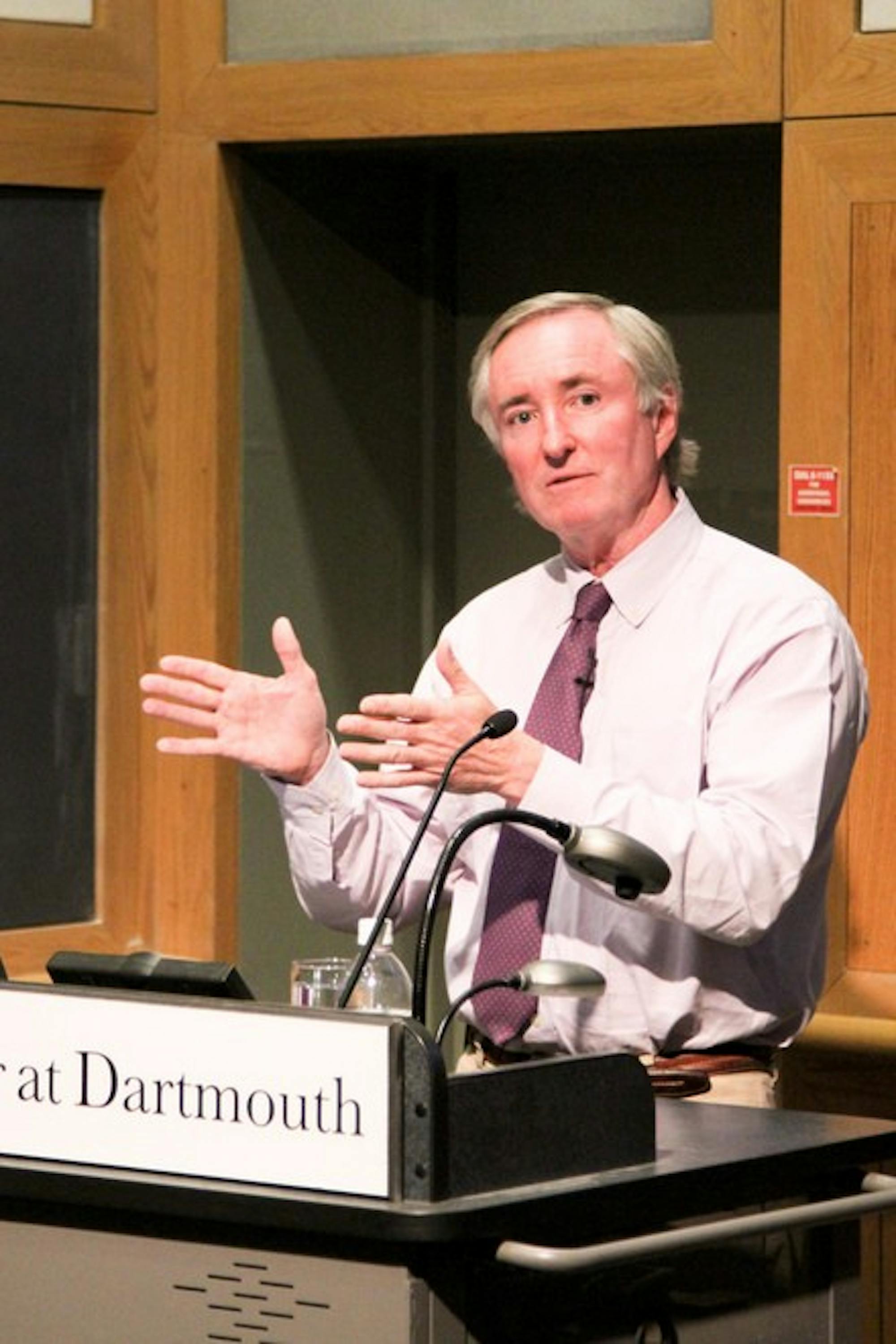O'Connell later discovered that the man, who was schizophrenic, had been the youngest professor ever to teach at Columbia University. O'Connell, president of the BHCHP, used the professor as an example of the extraordinary and unexpected experiences of many homeless people in the United States in his Monday talk, "Dispatches from the Streets: Lessons Learned During 25 Years of Caring for Boston's Rough Sleepers."
Care providers at BHCHP make an effort to believe everything that a patient says until they are proven wrong, O'Connell said. O'Connell pointed to the former Columbia professor, whom O'Connell referred to as Richard.
When Richard became sick and required hospital care, one doctor searched Richard's name on Google and discovered that the poet Allen Ginsberg had written letters to Richard, referencing a trip to San Francisco that was later featured in the novel "On the Road" by Jack Kerouac.
Richard did in fact teach English at Columbia from the time he was 16 until he had his first schizophrenic break at 19, O'Connell said.
"The lesson of this is that when you're outside seeing people wandering on the streets, [there are] often stories of remarkable courage of people in the face of terrible odds," he said.
The complexity of treating homeless patients challenges care providers to establish intimate relationships with patients and seek creative paths to treatment, O'Connell said in his lecture.
Members of the urban homeless population are six times more likely to die than the average person, according to O'Connell.
"People who live on the streets of cities in America have the highest mortality rate of any subgroup, bar none," he said.
O'Connell described homelessness as a weakness refracted in the "prism of society."
"Where education fails, where housing fails, where welfare fails, where labor fails that is homelessness," he said.
The homeless are often more concerned with securing basic food and shelter and do not consider their health a top priority, frequently creating treatment difficulties, O'Connell said.
"I had to learn the hard way that no one cares about health care until they've taken care of their survival needs," he said.
The relationship between a doctor and homeless patient is extremely important, O'Connell emphasized.
O'Connell was able to provide care for a homeless patient that Massachusetts General Hospital had deemed "resistant to treatment" by developing a close relationship with the patient at the Boston clinic, he said.
"It turns out he was not resistant to treatment at all we were just approaching it the wrong way," O'Connell said.
The homeless patients' desires sometimes run contrary to treatments given by care providers. Although the clinic set up one terminally ill patient to be cared for at a nursing home, for example, the patient returned to the homeless shelter where he had been previously because he wanted to be among his friends, O'Connell said.
"We learned the lesson of how you fit into someone else's world and appreciate what they want," he said.
Boston Healthcare for the Homeless aims to provide comprehensive help for patients, according to O'Connell.
"One of the things we've been trying really hard to understand is how do you get these systems substance abuse, mental health and medical systems to help people whose problems are unified," he said.
The Boston Healthcare for the Homeless program provides medical care for the homeless population of Boston and tries to find them housing in the city, O'Connell said.
A team of care providers including a doctor, nurse, psychiatrist and physician assistants as well as a member of the Boston's Department of Mental Health go on rounds three times a week to provide treatment to the homeless living on the streets of Boston who do not choose to come in to the program's clinic, he said.




